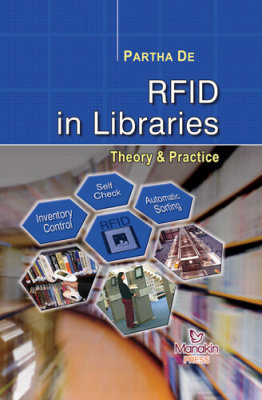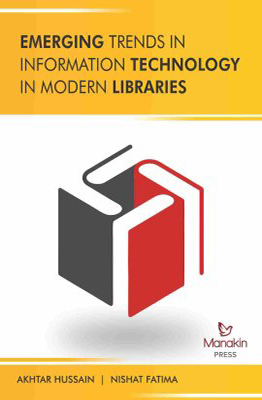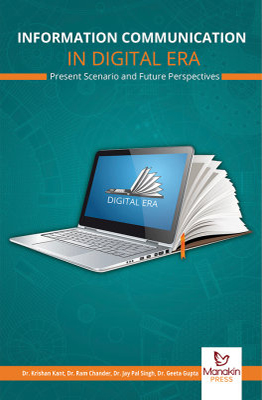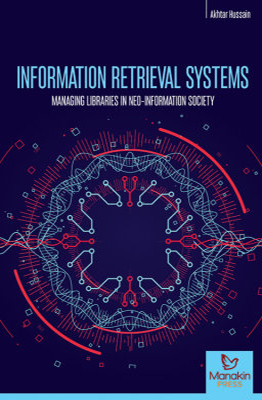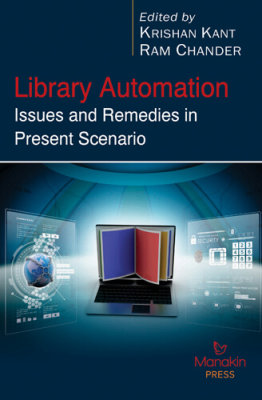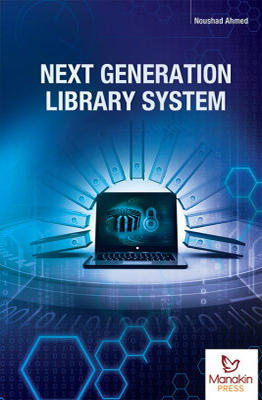

RFID in Libraries: Theory & Practice
₹2,495.00
 Partha De | Category: Library & Information Science
Partha De | Category: Library & Information Science
Binding Type: Hard Binding
Book Details
ISBN: 9788192959818
YOP: 2015
Pages: 232
Order also on
Most medium to large scaled libraries across the globe have already incorporated the Radio Frequency Identification (RFID) technology and increased their respective efficiencies by a solid margin. Moreover, a large percentage of significant libraries that do not already boast of RFID technology are in the process of implementing it. This is because RFID technology has developed leaps and bounds in the last decade. While it has multiple applications in numerous fields, it is most significant in how internal operations of libraries and knowledge repositories around the world function. The incorporation of RFID technology into existing library information systems in the country can provide a super-charged impetus to their efficiency levels. Implementation of RFID technology can manifest in multidirectional cost savings and improved performance levels. Benefits and elements that the RFID technology can add to existing library operations include.
- A Smoother Access Control System,
- Better Stack Management & Book Identification Systems,
- A Reliable Inventory Control System
- Independent Check-Out /Check-In Systems,
- Fool proof Anti-Theft Control System,
- Improved Inventory Management and Transfer Systems
In addition to financial savings, incorporation of RFID technology also promotes reduced dependence on the human element in administration. This eliminates human errors and directly improves the quality of services being offered to the end user. Despite the practical viability of RFID technology and adoption by libraries in developed nations, it’s yet to be adopted by libraries located in developing nations. The reason for this divide between libraries of developed and developing nations is lack of awareness and know-how pertaining to RFID technology. This book is designed to remedy that problem and encourage the adoption of RFID technology by the libraries of developing nations. Application of Radio Frequency Identification Technology in Libraries will educate librarians and knowledge custodians all over the country about various RFID components, ranging from the most basic elements to the more elaborate concepts.
With this book, the reader will learn about multiple elements pertinent to the RFID technology such as different types of RFID systems, their components, their installation costs, their installation procedure, their proper use, their maintenance, their maintenance costs, and future upgrades. More importantly, the book provides an immaculate roadmap for the implementation of the RFID technology in a practical and financially feasible manner.
1. Radio Frequency Identification (RFID)
2. Role of RFID in Libraries
3. Key Components of RFID
4. Interoperability and RFID Standards
5. Impact of RFID: Privacy, Health and Safety Issues
6. RFID and Library Security
7. Procuring RFID in Libraries
8. Investment and Return on RFID in Libraries
9. Future of RFID in Libraries Conclusion
References
Index
Most medium to large scaled libraries across the globe have already incorporated the Radio Frequency Identification (RFID) technology and increased their respective efficiencies by a solid margin. Moreover, a large percentage of significant libraries that do not already boast of RFID technology are in the process of implementing it. This is because RFID technology has developed leaps and bounds in the last decade. While it has multiple applications in numerous fields, it is most significant in how internal operations of libraries and knowledge repositories around the world function. The incorporation of RFID technology into existing library information systems in the country can provide a super-charged impetus to their efficiency levels. Implementation of RFID technology can manifest in multidirectional cost savings and improved performance levels. Benefits and elements that the RFID technology can add to existing library operations include.
- A Smoother Access Control System,
- Better Stack Management & Book Identification Systems,
- A Reliable Inventory Control System
- Independent Check-Out /Check-In Systems,
- Fool proof Anti-Theft Control System,
- Improved Inventory Management and Transfer Systems
In addition to financial savings, incorporation of RFID technology also promotes reduced dependence on the human element in administration. This eliminates human errors and directly improves the quality of services being offered to the end user. Despite the practical viability of RFID technology and adoption by libraries in developed nations, it’s yet to be adopted by libraries located in developing nations. The reason for this divide between libraries of developed and developing nations is lack of awareness and know-how pertaining to RFID technology. This book is designed to remedy that problem and encourage the adoption of RFID technology by the libraries of developing nations. Application of Radio Frequency Identification Technology in Libraries will educate librarians and knowledge custodians all over the country about various RFID components, ranging from the most basic elements to the more elaborate concepts.
With this book, the reader will learn about multiple elements pertinent to the RFID technology such as different types of RFID systems, their components, their installation costs, their installation procedure, their proper use, their maintenance, their maintenance costs, and future upgrades. More importantly, the book provides an immaculate roadmap for the implementation of the RFID technology in a practical and financially feasible manner.
1. Radio Frequency Identification (RFID)
2. Role of RFID in Libraries
3. Key Components of RFID
4. Interoperability and RFID Standards
5. Impact of RFID: Privacy, Health and Safety Issues
6. RFID and Library Security
7. Procuring RFID in Libraries
8. Investment and Return on RFID in Libraries
9. Future of RFID in Libraries Conclusion
References
Index
| Weight | 0.525 kg |
|---|---|
| Dimensions | 24.2 × 16.5 × 1.5 cm |
| yop |
2015 |
| subject-category |
Library & Information Science |
| isbn |
9788192959818 |
Related products


